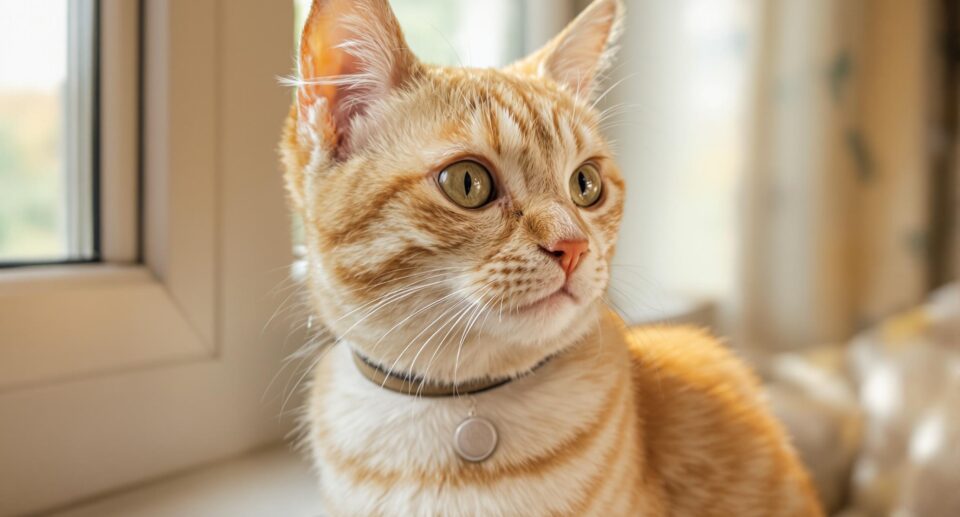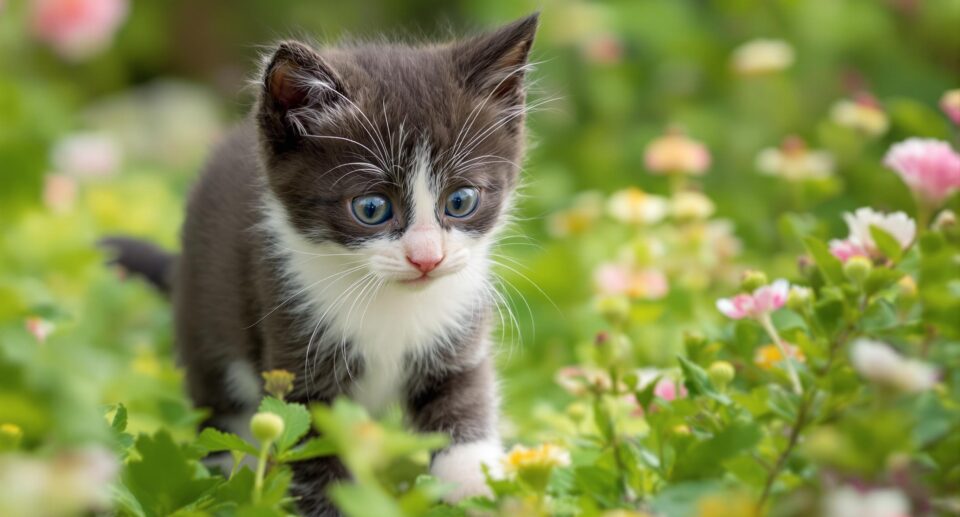A Cat Owner’s Guide: FAQs on Cat Food
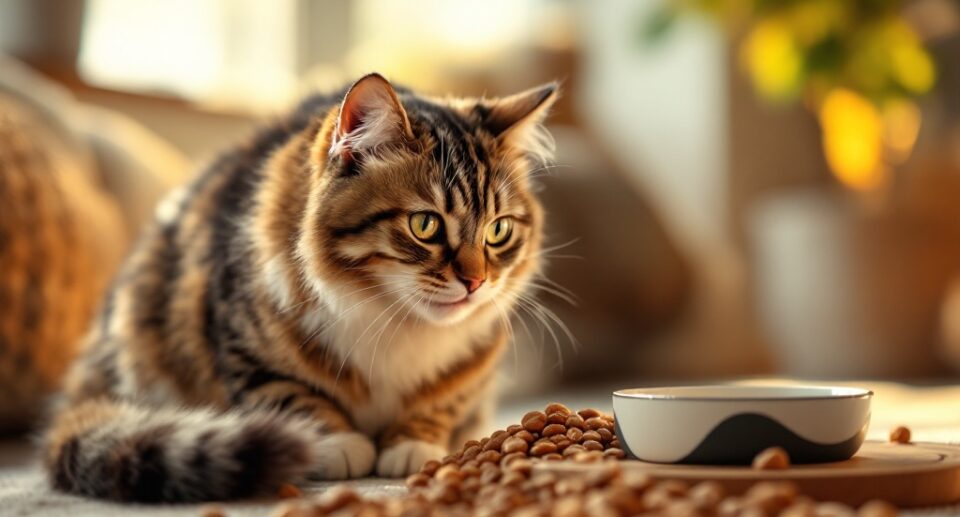
Key Takeaways:
- Cats are obligate carnivores and require a diet rich in animal-based proteins and adequate hydration to maintain optimal health.
- Understanding cat food labels and nutritional contents is vital for selecting the best food for your cat’s specific life stage and health needs.
- Grain-free and specialized diets can be beneficial for certain health conditions, but they should be chosen based on an individual cat’s health assessment.
Your cat depends on you for everything—food, water, love, and care. But when it comes to nutrition, making the right choices can feel overwhelming. With so many options on the market, how do you know what’s best for your furry friend? Proper nutrition is essential to keeping your cat happy and healthy. Whether you’re wondering about ingredients, portion sizes, or special diets, understanding what goes into your cat’s bowl is one of the best ways to support their well-being.
Many cat owners notice changes in their pet’s appetite or litter box habits and worry if something’s off. That’s why we’ve put together this guide to answer your most common cat food questions. PetHealthMD is here to provide pet owners with trusted information on feline nutrition.
Understanding the Nutritional Value of Cat Food
Did you know your cat’s natural prey contains 70–75% water, while dry cat food only has about 8%? That’s a huge difference! This is why proper nutrition is so important for your cat’s health and happiness. Cats thrive on animal-based proteins and need plenty of hydration to stay in top shape.
Your cat’s diet affects their energy, digestion, and overall well-being. Learning how to evaluate ingredients and nutritional value ensures your cat gets the nourishment they need to thrive.
What Nutrients Does My Cat Need in Their Diet?
Cats need a protein-packed diet with moderate fat and very few carbohydrates. They require more than a dozen essential nutrients, including amino acids, vitamins, and minerals.
How Do I Interpret Cat Food Labels Effectively?
Reading cat food labels is easier once you know what to look for. Make sure their food meets AAFCO standards, and always check the first five ingredients—these should include high-quality proteins like chicken, fish, or turkey.
Do Cats Need Different Food at Different Life Stages?
Yes! Cats have varying nutritional demands as they mature, much like people. For growth, kittens require more calories and protein, while older cats may need nutrients that support joint health and weight maintenance.
Can Kittens Eat Adult Cat Food?
Kittens should eat food specifically formulated for their growth and development. Adult cat food doesn’t provide the necessary nutrients kittens need, such as extra protein and fats. Transition to adult food around 12 months of age.
How Can I Monitor My Cat’s Nutritional Well-Being?
Pay attention to their coat, energy levels, and digestion. A shiny coat, steady energy, and healthy litter box habits usually mean they’re getting the right nutrients. If something seems off—like appetite changes or weight loss—it’s best to check with a veterinarian.
What Should I Do if My Cat Has Special Dietary Needs?
Some cats have food allergies or health conditions that require specific diets. A veterinarian can provide expert recommendations tailored to your cat’s needs.
For high-quality food and nutritional support, explore cat food and treats, cat vitamins and supplements, and cat digestive support from 1800PetMeds.
Exploring the Benefits and Risks of Grain-Free Cat Food
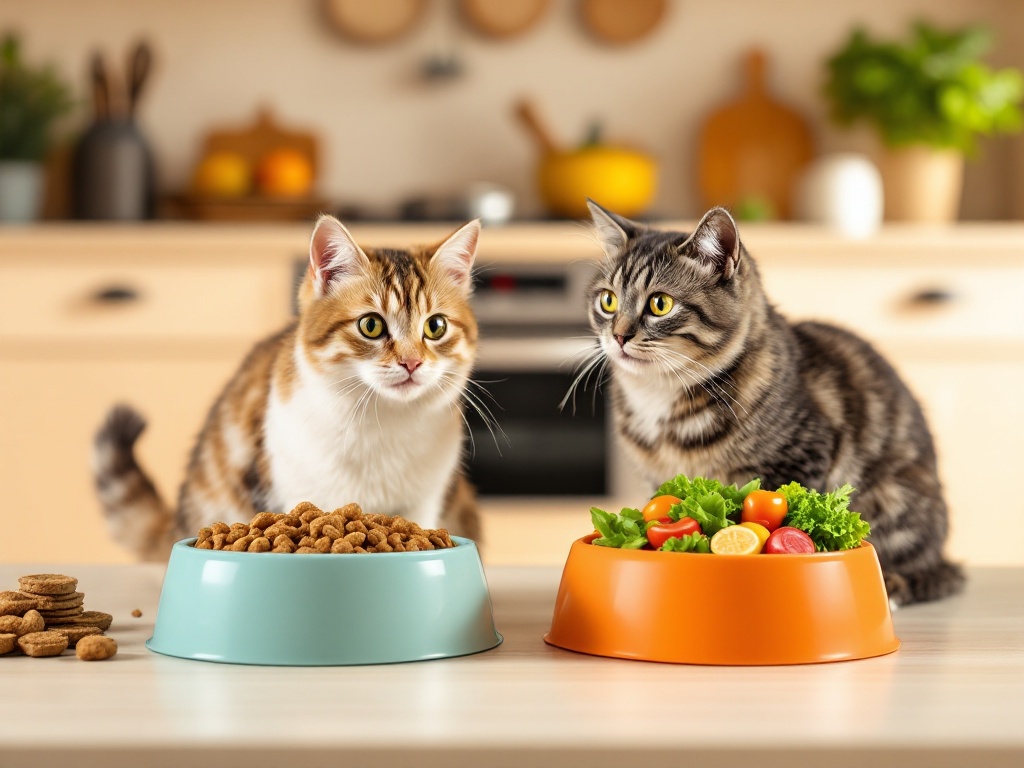
Many pet owners debate whether a grain-free diet is better for their cats. While some see benefits, others question its necessity. Here’s what you should consider.
What Makes Grain-Free Cat Food Different from Regular Cat Food?
Grain-free cat food replaces traditional grains with alternative carbohydrates like sweet potatoes or legumes. If you’re unsure whether this is the right choice for your cat, review ingredient labels and ensure a balanced nutritional profile.
How Do I Know if My Cat Would Benefit from Grain-Free Food?
Allergies to grain in cats are rare, but some felines do better with grain-free options, especially if they have digestive issues. If your cat has a sensitive stomach, you might notice improvements with a grain-free diet. When in doubt, consult your vet.
What Should I Look for When Choosing a Grain-Free Brand?
Not all grain-free foods are the same. Choose brands that maintain proper nutrient ratios and use high-quality proteins as the main ingredient.
How Much Dry Food and Wet Food Should I Feed?
A good rule of thumb is to feed your cat approximately two-thirds of their daily calories from wet food and one-third from dry food. Wet food provides hydration, while dry food can help with dental health. Always check portion recommendations on food labels.
How Can I Safely Transition My Cat to Grain-Free Food?
Switching foods too quickly can upset your cat’s stomach. Transition slowly over 7–10 days by increasing the new food little by little while decreasing the old one. Keep an eye on their digestion and appetite during the switch.
Choosing the Best Cat Food for Optimal Health
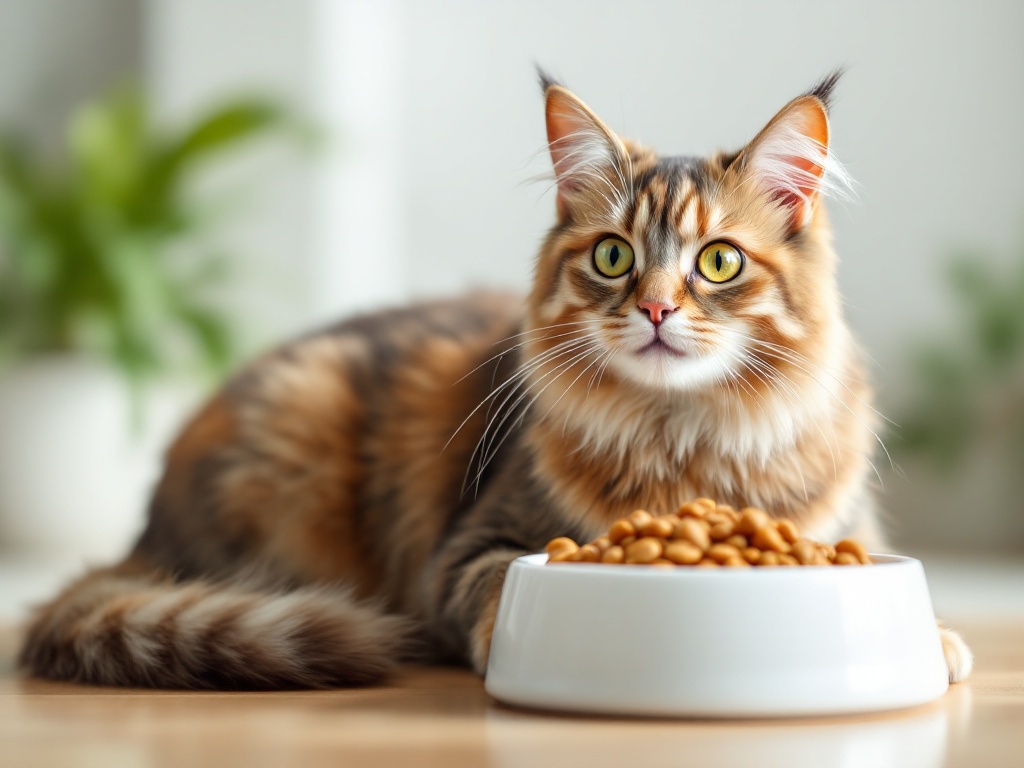
Picking the right food can feel overwhelming, but it doesn’t have to be. Knowing what to look for makes a big difference in your cat’s overall health.
What Should I Look for When Reading Cat Food Labels?
Look for foods where high-quality protein (like chicken, salmon, or turkey) is the first ingredient. Your cat needs animal-based proteins and essential nutrients like taurine and healthy fats to thrive. Avoid artificial colors, unnamed meat by-products, and excessive fillers.
Can Cats Eat Dog Food?
No, cats should not eat dog food regularly. While an occasional bite won’t harm them, dog food lacks essential nutrients like taurine, which cats need for heart and eye health. A diet consisting of dog food can lead to serious health issues in cats.
How Do Natural and Organic Options Benefit My Cat?
Natural and organic cat foods often have better-quality ingredients that are easier to digest. Many contain omega-3-rich fish oils, which promote a healthy coat and skin. They also tend to avoid artificial preservatives, which can trigger sensitivities in some cats.
How Can I Tell if My Cat Needs a Special Diet?
Observe their weight, energy levels, and digestion. If your cat is gaining or losing weight unexpectedly or having frequent stomach issues, they may need a diet change. Moisture-rich foods are great for urinary health, and weight-management formulas can help overweight cats stay fit.
How Long Can Wet Cat Food Sit Out?
Wet cat food should not sit out for more than 2–4 hours, depending on room temperature. After that, bacteria can grow, making it unsafe for your cat to eat. Always store opened wet food in the refrigerator and use it within 24–48 hours.
What Human Food Can Cats Eat?
Some human foods, such as cooked chicken, turkey, plain fish, scrambled eggs, and small portions of cheese, are safe for cats in moderation. However, avoid onions, garlic, chocolate, grapes, and dairy products, as they can be harmful.
How Much Food Should I Feed My Cat?
The right portion depends on your cat’s age, weight, and activity level. Generally, adult cats need about 20 calories per pound of body weight per day.
What’s the Best Way to Change My Cat’s Food?
When switching your cat’s food, do it gradually over 7–10 days to help their digestive system adjust. Slowly mix increasing amounts of the new food with their current diet while monitoring their response.
Making Informed Cat Food Choices with PetHealthMD
With the correct knowledge, you can choose the appropriate diet for your cat’s needs with confidence. Feeding your cat shouldn’t be difficult—they can maintain their health and feel better all around if you are aware of their nutritional requirements. You’re giving them the foundation for a long, healthy life.The best is what your cat deserves, and their health and happiness are greatly influenced by their diet. Get expert guidance on feline nutrition, special diets, and feeding tips from PetHealthMD today. Explore all cat supplies to support your cat’s lifelong well-being.

